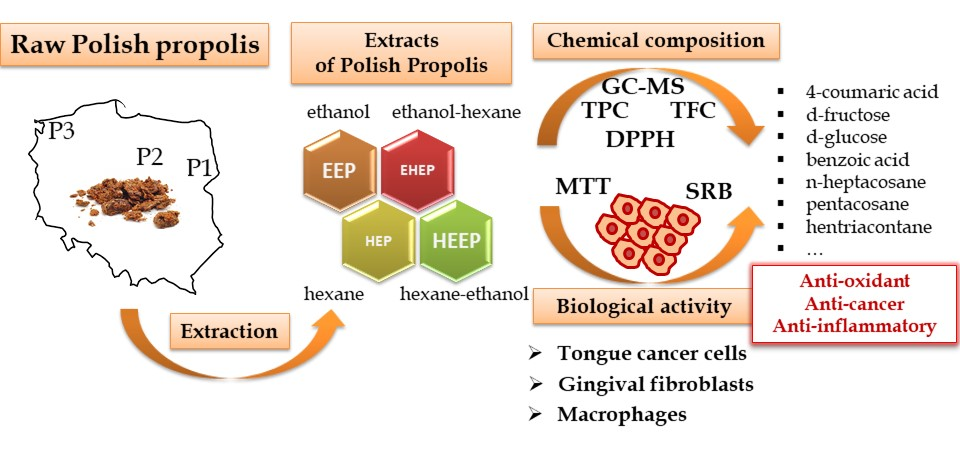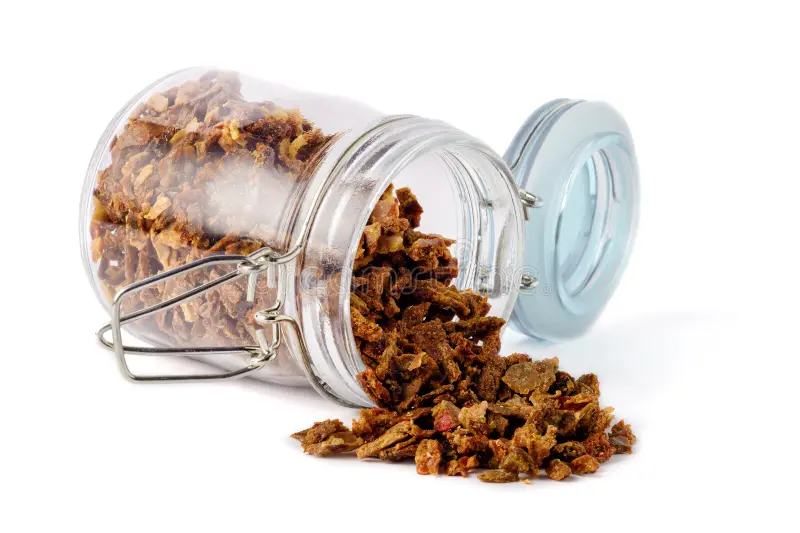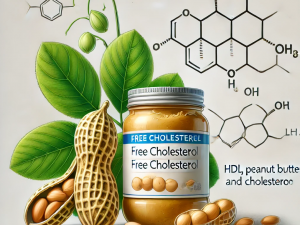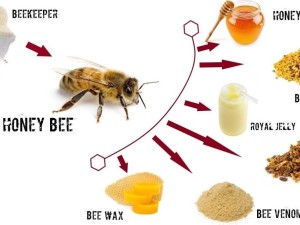 13اردیبهشت
13اردیبهشت
Wonder of Propolis

Wonders of Propolis: A Natural Remedy with Ancient Roots
Propolis, also known as "bee glue," is a fascinating resinous substance produced by honeybees. These industrious insects collect materials from tree buds, sap flows, and other botanical sources (7, 10, 16). They then meticulously combine these treasures with their saliva and beeswax to create a remarkable compound. This sticky concoction serves multiple purposes for the hive. It acts as a natural sealant, plugging gaps and keeping the hive weatherproof. Propolis also provides thermal insulation, reduces vibrations within the hive, and most importantly, protects against harmful pathogens due to its potent antifungal and antibacterial properties (16).
The remarkable qualities of propolis haven't gone unnoticed by humans throughout history. Ancient civilizations, including the Greeks, Assyrians, and Egyptians, revered propolis for its healing properties (22). They employed it for a variety of purposes, such as treating abscesses, embalming mummies, and promoting wound healing (22). Today, science is catching up to tradition. Modern research confirms propolis possesses a wealth of health benefits thanks to its antibacterial, antiseptic, anti-inflammatory, antifungal, and even anesthetic properties (10, 16, 19). While propolis has played a significant role in traditional medicine, more research is needed to fully understand its effectiveness in treating specific illnesses.

A Treasure Trove of Bioactive Compounds and Potential Health Benefits
Propolis boasts a complex composition, primarily consisting of resins, waxes, essential oils, pollen, and a multitude of other bioactive compounds (24). These bioactive compounds, particularly flavonoids like pinocembrin, are what endow propolis with its impressive antifungal, anti-inflammatory, and antimicrobial properties (5, 10, 20, 22). This unique combination contributes significantly to propolis's role in wound healing, especially for burns (22). Excitingly, modern research suggests propolis may even stimulate collagen production, further aiding the healing process (22).
Propolis's antiviral potential is another promising area of exploration. Studies indicate it may be effective in mitigating cold sores and genital herpes (22). Ointments containing just 3% propolis have shown promise in accelerating healing time and reducing symptoms associated with these conditions (22). Furthermore, propolis comes in various forms, including extracts, creams, and capsules, which are believed to possess immunomodulatory and antiviral effects. These properties could potentially strengthen the immune system while fighting influenza and other respiratory ailments (22).
Data also suggests propolis may have antioxidant properties that could translate to cardiovascular and neurological benefits (22). Studies have linked propolis to a reduced risk of high cholesterol and heart disease. One study even found that propolis extracts helped balance low-density and high-density lipoprotein cholesterol levels, suggesting a potential protective effect on the heart (6, 22).

Propolis and its Potential Role in Cancer Treatment
The potential anticancer properties of propolis are a captivating area of research. The presence of caffeic acid phenethyl ester (CAPE) in propolis is believed to hinder the cell transformation mechanisms that lead to cancer (7, 10, 16, 22). Research is ongoing to explore propolis's ability to inhibit cancer cell growth and its potential to work synergistically with chemotherapy and radiation therapy to reduce side effects (7, 10, 16, 22).

Propolis: A Boon for Oral and Dental Health
Propolis's antibacterial properties have found application in dentistry. It shows promise in improving oral health and treating conditions like gingivitis, denture stomatitis, and even dental caries (7, 10, 16, 22). Toothpaste formulations containing propolis may contribute to better oral hygiene and management of plaque-induced gingivitis (22).

Important Considerations: Potential Side Effects and Precautions
Despite its numerous benefits, it's crucial to exercise caution when using propolis. There are potential risks, especially for individuals with allergies to bee products or pollen, which could trigger reactions such as mouth irritation, allergic contact dermatitis, and even systemic responses (6). Therefore, it's essential to consult a healthcare professional before using propolis, particularly if you are taking other medications, pregnant, or breastfeeding (22).
Unveiling the Future of Propolis Research
The exploration of propolis in research has been extensive and multifaceted. Studies conducted in vitro, in vivo, and clinical settings are continually expanding our understanding of propolis's potential applications (7, 10, 16). As research progresses, we are gaining deeper insights into propolis's unique chemistry, the influence of its diverse botanical origins, and its potential
A Brighter Future with Propolis Research
As research progresses, we are gaining deeper insights into propolis's unique chemistry, the influence of its diverse botanical origins, and its potential as a therapeutic agent (7, 10, 16). Ongoing research is focused on standardizing propolis preparations for medicinal and cosmetic uses. This standardization takes into account the geographic diversity and unique chemical compositions that influence propolis's efficacy (7, 10, 16).
Conclusion: A Natural Remedy with Lasting Promise
In conclusion, propolis is a multifaceted product of honeybees with a rich history of medicinal use. Its diverse composition, influenced by geographical and seasonal factors, offers a vast array of potential health benefits. From treating infections and supporting cardiovascular health to exploring its role in alternative cancer therapies, propolis remains a subject of considerable interest. With continued research and responsible use, propolis has the potential to become a valuable addition to future medical and therapeutic interventions. Its promising applications within the realm of herbal medicine solidify its significance as more than just a beehive byproduct, but as a powerful advocate for natural well-being and defense (6, 22).
- 1- https://www.semanticscholar.org/paper/A-Comprehensive-Review-on-Chemical-Compounds%2C-and-Salleh-Johari/bab335c886a8b12e25b1895707c9bfe2278df21a
- 2- https://www.hindawi.com/journals/ecam/2013/697390/
- 3- https://www.tuasaude.com/en/propolis/
- 4- https://www.health.com/propolis-7106541
- 5- https://www.medicalnewstoday.com/articles/propolis
- 6- https://beevitalpropolis.com/blogs/news/is-propolis-a-herbal-medicine
- 7- https://www.medicinenet.com/propolis/article.htm
- 8- https://www.rxlist.com/propolis/generic-drug.htm
- 9- https://www.rxlist.com/supplements/propolis.htm
- 10- https://www.ncbi.nlm.nih.gov/pmc/articles/PMC6893770/
- 11- https://www.healthifyme.com/blog/propolis-benefits/
- 12- https://www.mskcc.org/cancer-care/integrative-medicine/herbs/propolis
- 13- https://www.ncbi.nlm.nih.gov/pmc/articles/PMC6271758/
- 14- https://www.ncbi.nlm.nih.gov/pmc/articles/PMC6064031/
- 15- https://medium.com/@vegasbees/honey-bees-making-propolis-aa5df0432c99
- 16- https://beelab.umn.edu/propolis
- 17- https://en.wikipedia.org/wiki/Propolis
- 18- https://www.beeculture.com/propolis/
- 19- https://www.hindawi.com/journals/aps/2013/308249/
- 20- https://www.hindawi.com/journals/ecam/2013/807578/
- 21- https://www.healthline.com/health/propolis-an-ancient-healer
- 22- https://cmjournal.biomedcentral.com/articles/10.1186/s13020-022-00651-2
- 23- https://www.ncbi.nlm.nih.gov/pmc/articles/PMC3249695/
- 24- https://www.ncbi.nlm.nih.gov/pmc/articles/PMC3655583/
- 25- https://www.webmd.com/vitamins/ai/ingredientmono-390/propolis











